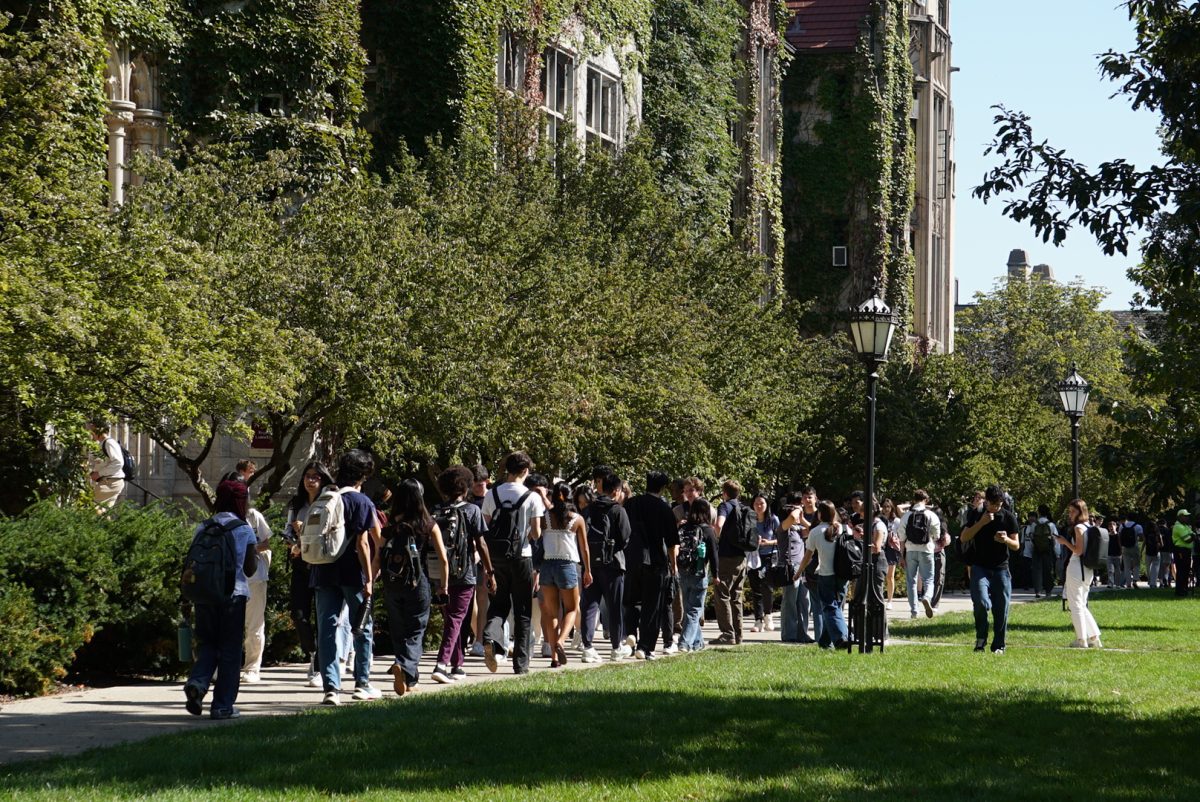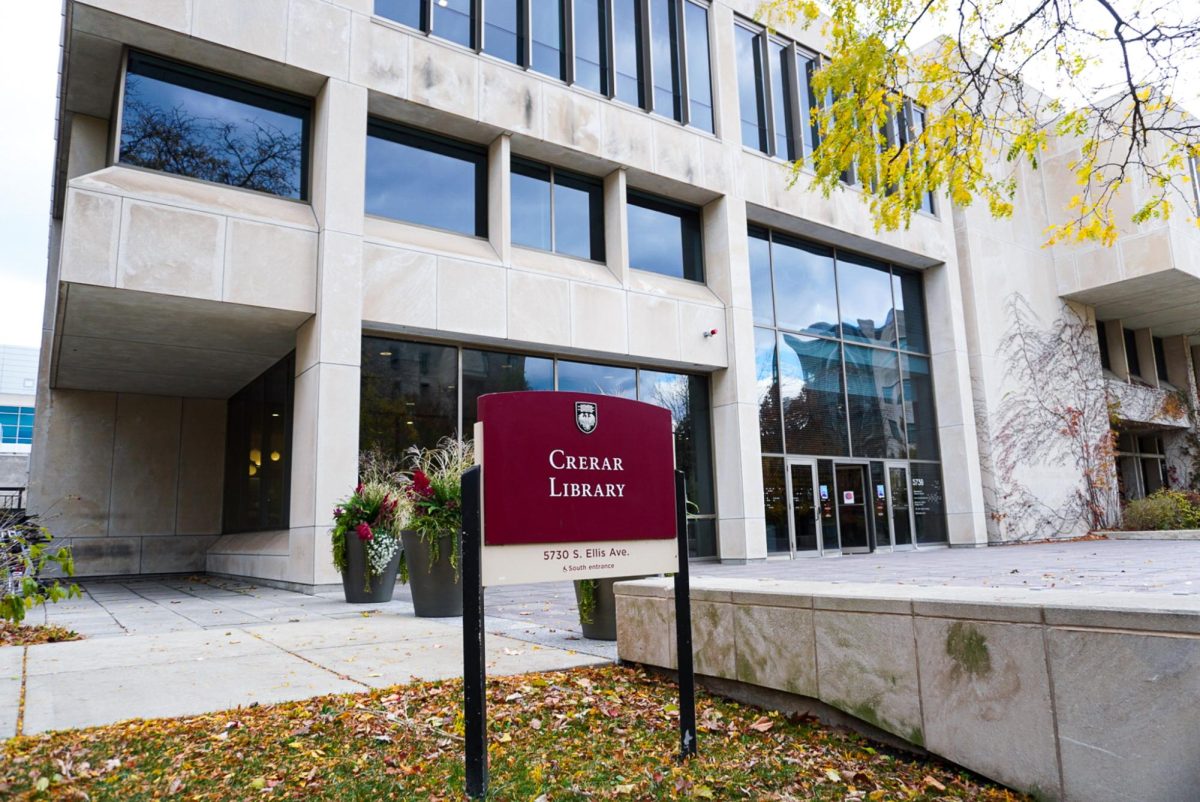April may or may not be the cruelest month, but it’s definitely a busy one. This month is National Poetry Month, National Kite Month, Mathematics Education Month, National Humor Month and School Library Media Month. It also happens to be Sexual Assault Awareness Month or, as publicized within the U of C, Rape Prevention Month. In honor of this month, the U of C’s Resources for Sexual Violence Prevention (RSVP) will present through April a host of activities. The purpose of these programs is to highlight the problem of sexual assault and the means of preventing it, focusing mainly on the victimization of females by males (understandably, since homosexual abuse and abuse of males by females, though a concern, is comparatively rare). From discussions to live performances, and even an impact self-defense class, RSVP is putting in a commendable effort to raise awareness of this terrible crime at a college where most students, girls and guys alike, really couldn’t care less. I don’t mean to be dismissive of the small percent of our college population to whom sexual abuse has been a very real and harrowing experience. But as a whole, U of C students have fortunately been spared the pain, if statistics are anything to go by. According to the 2001 edition of Common Sense, the University’s guide on how to stay safe in Chicago, there were six forcible sex offenses (not necessarily involving students) reported as having occurred in or around the campus in 1999, and one in 2000. And while one is still one too many, these numbers aren’t something for U of C students to lose sleep over.
The lack of concern over sexual assault may have something to do with the reputation of the College. As a schoolmate put it, “At the U of C, the girls are too ugly and the boys are too geeky for anything to happen.” While not totally agreeing with the sentiment, I admit that the culture of the college, with its strong focus on academics leading some to brand it a “nerd” school, means that any tragedies that should befall a student here are more likely to be scholastically related.
The same (I suspect somewhat bitter) person commented that U of C boys are “not exactly wild, lascivious sexual predators,” and are hence unlikely rapists. Point taken, but perhaps more probable than cold-blooded rape could be a type of date rape, where the guy mistakenly believes that the girl has given her permission because one or both parties are under the influence of alcohol and/or drugs. And as for threats from outside the student body, while the campus is reputedly in a “dangerous” location, I can vouch that I have never once felt threatened or believed myself to be in physical danger, even when walking back to my off-campus dorm after dark. Some students have ceased to carry around the emergency whistles handed out during orientation, which is also a small but obvious indicator of the general feeling of safety U of C students enjoy.
Of course, date rape is still a horrible thing and there are violent crimes committed in Hyde Park, so one shouldn’t be complacent—just because sexual assault is statistically unlikely to befall a U of C student doesn’t mean it won’t happen to you. According to a research study called The Sexual Victimization of College Women, published by the National Institute of Justice in December 2000, 2.8 percent of women have experienced either a complete or an attempted rape incident during their college years. Clearly, one ought to stick to the “better safe than sorry” policy, and consequently I do intend to check out some of RSVP’s activities and maybe even pick up a karate move or two. Also, despite the observation that most students here are indifferent towards learning about sexual abuse prevention, I wish that RSVP could cover more ground than they intend to, as indicated by their schedule of events. Most of the activities appear to be geared towards helping women prevent rape, should a possibly threatening situation arise, instead of addressing the fact that it is society’s perception of women as sex objects which contributes to much of the sex crimes against women.
RSVP will be holding discussions about gender bias in the context of racial minority groups, but a more general acknowledgement of the prejudices that exist in all aspects of our society appear limited to the organization of a discussion on sexism in advertising, and the putting together of a display of sexist advertisements. While the media does play a role in perpetuating gender stereotypes, I hardly see it as the root of sexist attitudes: a Playboy might get a guy excited, but images won’t develop his disrespect for women so much as his observation of the treatment of women in society and how he was brought up to relate to members of the opposite sex will. Thus, although it’s important to recognize that the media has a great power to influence, we must not forget that it is also a mirror of society, and to demonize the media is akin to fussing over a headache when it’s really that giant tumor in your brain you should be worrying about.
Of course, it would take much more than a month to discuss all the cultural attitudes which contribute to the problem of sexual abuse, and even more time than that would be needed to nurture a society free from such perceptions. But, as every organization and interest group knows, a month’s a start. And April’s as good a month as any.






